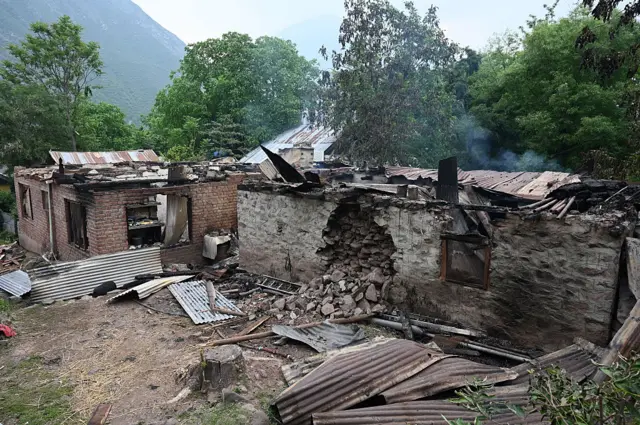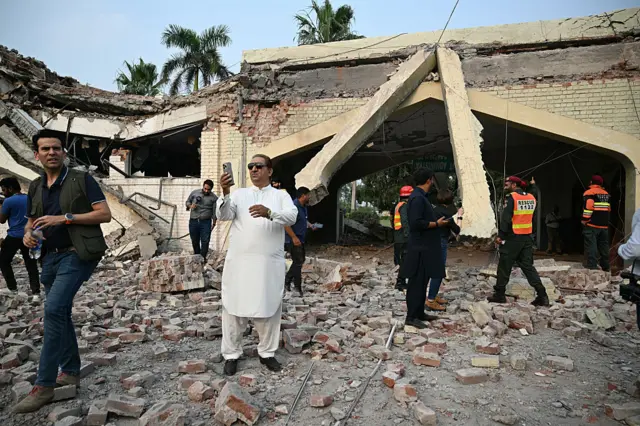What is the way out of this crisis?published at 15:21 British Summer Time 8 May
Anbarasan Ethirajan
South Asia Regional Editor
 Image source, Getty Images
Image source, Getty ImagesHouses damaged by Pakistani artillery shelling in Uri, Indian-administered Kashmir
The ongoing India-Pakistan
crisis has taken a dangerous turn. Both nations have for the first time carried
out mass drone attacks, including on military installations.
Pakistan said it
had shot down 25 Indian drones, some far from the disputed Kashmir region.
India said it had neutralised Pakistani attack drones and also claimed it
had destroyed an air defence system in Lahore (Islamabad has denied this).
The fact that the Indian drones
have managed to reach the highly protected garrison city of Rawalpindi, Lahore and
Karachi has come as a surprise for many in Pakistan.
Probably, using the drones
may be less expensive than using exorbitantly priced state-of-the-art fighter
jets. If the drone warfare continues, then it’s likely to cause further
disruptions and anger on both sides.
World nations have urged calm. The initial
thinking was that after India launched missile attacks and with Pakistan
claiming to have shot down several Indian jets (a claim Delhi has not confirmed), both sides could claim “victory”
and de-escalate.
 Image source, Getty Images
Image source, Getty ImagesA damaged building in Muridke, about 30km from Lahore, after Indian strikes
But there’s a danger that any protracted tit-for-tat attacks could lead them to a far more damaging prospect.
During past conflicts, it was the US and a few other global powers which put pressure on the two capitals to bring the situation under control and de-escalate.
Now passions are running high, and the nationalist rhetoric has reached a crescendo on both sides and they are closer to war than in recent decades.
Unless Washington gets more involved, Islamabad and Delhi may continue with their accusations and counter-accusations.
Gulf states like Qatar, Saudi Arabia and the United Arab Emirates, which have close ties to both the countries, can step up their mediation efforts.
While the Trump administration’s priorities are more about tariffs, China and Ukraine-Russia, it may require a concerted attempt by the international community to lower tension between the two nuclear-armed south Asian rivals.

